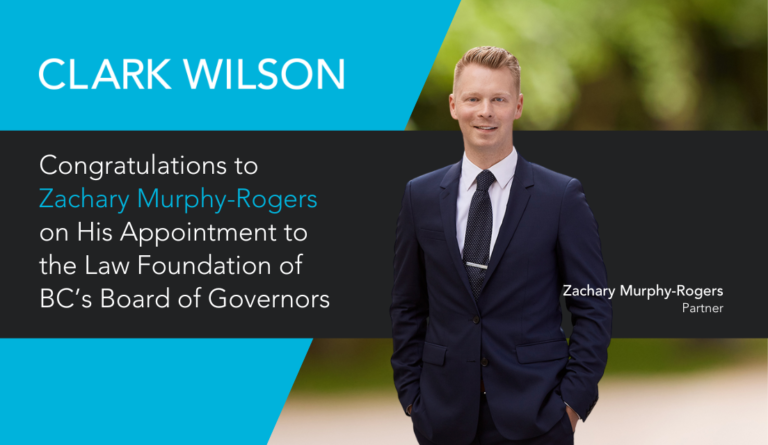You may have heard the term “fiduciary” many times, but what does it mean exactly? The term “fiduciary” originates from the Latin word fiduciarius, meaning “holding in trust”. According to Black’s Law Dictionary, a fiduciary is a person who is required to act for the benefit of another person on all matters within the scope of their relationship, and one who owes to another the duties of good faith, trust, confidence and candour. Since fiduciaries are bound to act in the best interests of their beneficiaries, they must avoid personal interests that may have a negative impact on their beneficiaries’ interests and focus solely upon their duties to their beneficiaries. As such, our courts over the years have strictly enforced “no conflict” and “no profit” principles of fiduciaries.
When does a person (or organization) become a fiduciary? Certain relationships have traditionally been recognized as subject to the duties and obligations imposed upon fiduciaries. These traditional categories include, amongst others, trustee and beneficiary, solicitor and client, principal and agent, and director and company.
However, it is open to the courts to find fiduciary relationships and impose fiduciary obligations in other trust-like relationships. In 1987, the Supreme Court of Canada in Frame v. Smith set out the following elements of a fiduciary relationship:
- The fiduciary has the ability to exercise discretion or power.
- The fiduciary can unilaterally exercise that power or discretion so as to affect the beneficiary’s legal or practical interests.
- The beneficiary is peculiarly vulnerable to or at the mercy of the fiduciary holding the discretion or power.
Guided by the three criteria, the courts of various levels and jurisdictions have recognized many fiduciary relationships, including those between financial advisors and their clients, school boards and students, the Federal government and First Nations whose affairs the Federal government is managing, and between a holder of a power of attorney and the donor of the power.
The list continues to expand. A fiduciary duty may be found even if the alleged fiduciary is not a professional of any sort. For instance, in Janz v. McIntosh, the plaintiff’s husband asked a neighbour and friend to take care of his wife after his death. After the husband’s death, the neighbour stepped in to help the unsophisticated plaintiff (the wife) in her financial dealings for several years. During this time, the neighbour borrowed amounts from the plaintiff, which were later repaid. Subsequently, the plaintiff received an $80,000 inheritance which the neighbour suggested be placed in a joint bank account. The neighbour later borrowed $74,000 of the amount interest-free with the plaintiff’s permission, repaid $15,000 of it and then went bankrupt. The Court held that the neighbour owed a fiduciary duty to the plaintiff, which he had violated by using undue influence to borrow funds from her inheritance without disclosing the benefits he would derive from it, without having posted any security or agreeing to pay interest, and without having advised her to seek independent legal advice.
A breach of a fiduciary duty can give rise to a wide range of remedies. One overreaching principle is that where a breach of fiduciary duty occurs, any gain the fiduciary obtained resulting from the breach belongs to the beneficiary; if the breach resulted in a loss, the loss is the fiduciary’s personal loss and full restitution to the beneficiary must be made. In the Janz v. McIntosh case, the Court found that the loan agreement between the neighbour and the plaintiff was unconscionable and was voidable. The Court imposed a “constructive trust” on the neighbour’s home to the extent the money that the neighbour obtained from the plaintiff was used to pay off the mortgage. The Court further ordered that the plaintiff was entitled to bring legal action against the neighbour’s pension to the extent of the monetary compensation that the Court awarded to the plaintiff.
Canadian courts are increasingly willing to recognize the existence of a fiduciary relationship when there is an inherent relationship of trust with a potential for exploitation. If you suspect that you or your organization might be in a fiduciary position with respect to the affairs of another person, and that you might be in a “conflict of interest” position or may potentially gain a “profit”, either intentionally or unintentionally, from your position, it is prudent that you seek legal advice to ensure that proper disclosure procedures are followed and that any transactions involved are fair and reasonable.



